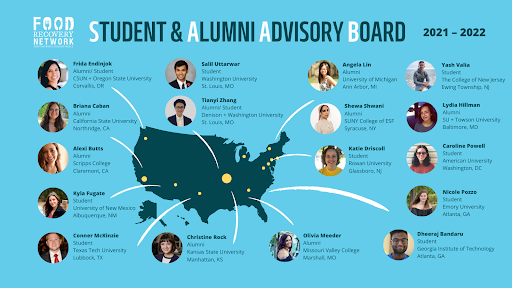Throughout this fall student leaders from across the U.S. have joined FRN’s network-wide calls, responded to our social media polls, and emailed us to let us know how their chapters are doing this semester.
Through this outreach, we learned about some common challenges that are preventing chapters from resuming their food recovery programs, including:
Difficulty reconnecting with dining services to recover food
Volunteer capacity isn’t quite the same
Partner agencies are no longer accepting prepared foods
If you haven’t already, fill out FRN’s End of Semester survey to share information about your chapter’s experience this semester! Your feedback helps FRN National plan our programs and provide the resources you need to activate.
How are chapters responding to the challenges they’re facing to recover surplus food?
70% of FRN chapters planned to recover surplus food this year, but since August only 18% of our chapters have reported food recovery data. Some of the challenges our network faces stem from temporary changes in the food recovery landscape due to the ongoing pandemic.
In response, FRN Chapters are exploring how to further engage in alternative ways of impacting their communities until they can revive their food recovery programs, including:
Fundraising and/or volunteering with their partner agencies
Developing new partnerships with off-campus food donors
Joining research Power Hours with FRN and The Farmlink Project
Joining conversations about the intersectionality of food waste and food insecurity
We’ve also learned that a number of our chapters, including new chapters that joined our network this semester, are exploring how to establish on-campus food pantries to increase food access for college students. Additionally, some of our more seasoned chapters are learning how to set up and manage community fridges, which increase food access on a local level. We look forward to learning more about how our chapters are putting these structures in place and what resources might benefit the network to expand these models over time.
Resources to activate your chapter
FRN National is delighted to support our student leaders as they activate their chapters in new ways. Is your chapter seeking ideas on how to stay engaged? Check out these helpful resources, tools, and tips:
If your chapter has helped to set up an on-campus food pantry, we’d love to hear more about your experience. Email us at programs@foodreccoverynetwork.org or DM us on social media to set up a call! Your feedback will help us support other students in the network who are interested in doing the same.














